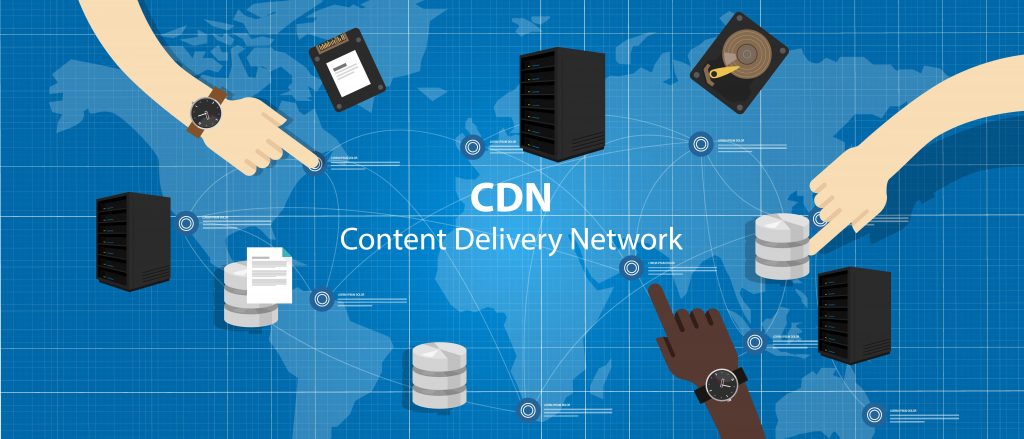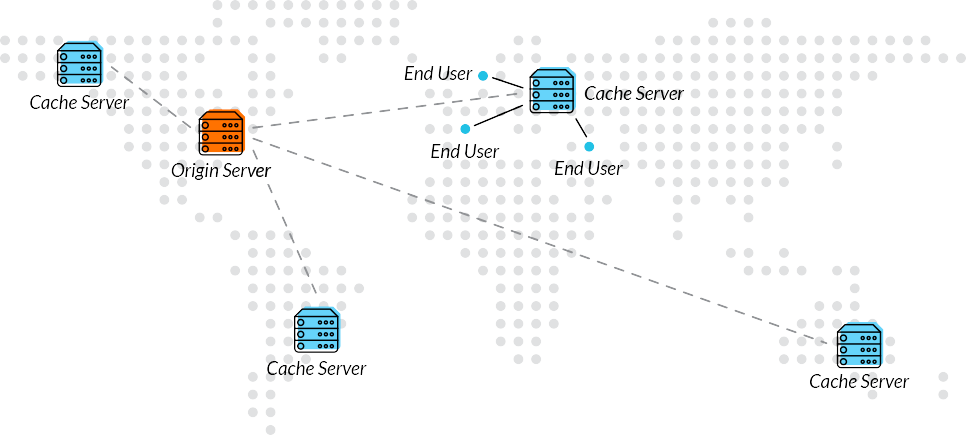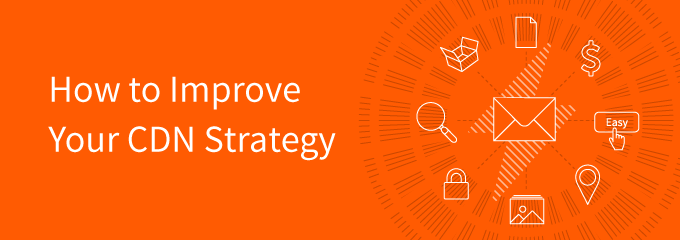
There are certain things in life with names so seemingly simple it feels as though we ought to automatically know exactly what they are, what they do and why they’re necessary. A content delivery network (CDN) falls into this category of things that seem self-explanatory but are more complex than they sound. Not knowing just what they do, how they improve website performance and who benefits from them the most could be majorly detrimental to many websites and businesses, however, so here are the essential questions site owners should be asking as well as the definitive answers.
You would be right to assume that a CDN is a network dedicated to delivering a website’s content, but there’s a lot more to it than that. It’s a global network of data centers, each one with a proxy cache server, designed to improve website performance.
How exactly does a CDN improve website performance?
The two main things a CDN does to enhance performance is improve a website’s availability and speed up page load time. Since a CDN is a multi-server environment it offers inherent load balancing which improves availability by keeping any one server from becoming overwhelmed during high-traffic periods.
There are a number of ways a content delivery network reduces latency and improves page load time and the main one is through the reduction of how far data has to travel in order to reach the users that are requesting it. Firstly, users are redirected to the data center closest to them, reducing how far requested content physically has to travel. Secondly, cache servers store cached web content which cuts down on trips to the origin server to fetch content.
CDNs also offer a couple of optimization services to improve website performance, optimizing network connections for maximum efficiency and optimizing content by compressing image files, CSS, HTML and JavaScript and removing unnecessary characters from the source code. Additionally, CDNs provide efficient management of multimedia resources.
What else does a CDN do?

Quick cache: how CDNs are getting smart to improve website performance
Leading content delivery networks also provide built-in protection against DDoS attacks with load balancing as well as offer additional DDoS protection in the form of a managed service that can be always on or on-demand depending on a website’s specific needs. The best of this protection is cloud-based and positioned at the perimeter of a website’s network in order to keep attack traffic from ever even touching its intended target while allowing legitimate site users through without any delay. Additional integrated security includes customizable security rules, web application firewall and two-factor authentication.
Leading CDNs also allow websites to automatically enable IPv6 and HTTP/2 without any upgrade of the origin infrastructure, aligning sites with the most current internet protocols. Reduced bandwidth usage and the resultant reduced bandwidth bills by upwards of 70% in some cases are another perk, as are the improved search engine rankings that come courtesy of the reduced latency in page load time.
Who can benefit from a CDN?

THE ESSENTIAL GUIDE TO CDN
Websites that reap the biggest benefits from CDNs are ones that have international traffic that will be efficiently distributed to global data centers, experience high bursts of traffic that the multi-server environment will handle with ease, serve mobile users who otherwise experience slower page load times, and are growing and gaining traffic as CDNs allow for easy scalability.
Additionally, websites that have a lot of dynamic content will benefit from the dynamic caching offered by leading CDNs, as this content would otherwise take just too much time to load. Websites that use SSL to provide secure connections almost always require a CDN since those connections take longer to establish and a CDN can offset that delay with improved site performance. Improved performance is especially important for these sites as sites using SSL often generate revenue through sales and therefore need to keep users happy with excellent site performance lest carts be abandoned for speedier competitors.
Lastly, websites in highly competitive industries greatly benefit from the DDoS protection of a CDN as it will help guard against unscrupulous attacks from competitors or angry users. Specific categories of websites that most benefit from CDNs include those in the fields of ecommerce, SaaS, online banking and finance and online gaming and gambling, among others. However, considering 25% of internet users will abandon a website for a page load time of four seconds, perhaps every website would most benefit from a CDN.
Knowledge is power

10 Tips for Understanding and Improving Your CDN Strategy
Being familiar with what a CDN is and what it can do is the first step towards improved website performance as well as all the associated benefits a content delivery network can provide. It’s the kind of solution website owners the world over will be glad they investigated past the seemingly obvious name.




